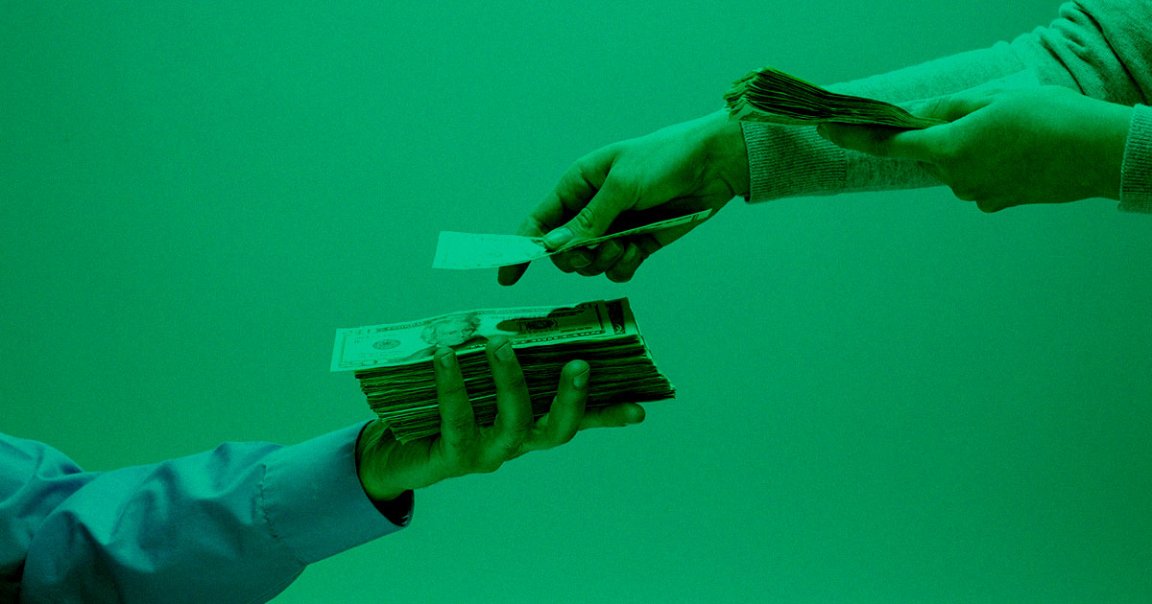
It’s official: money can, in fact, buy you happiness. , as NBC reports
An experiment, described in a new paper published in the journal PNAS this week, was simple: researchers gave 200 people a one-time sum of $10,000 — sourced from two anonymous donors — and asked them to rate their happiness on a monthly basis.
The catch: they had to spend the ten grand within just three months.
And the result? Participants who received the cash rated their happiness higher than a control group after a luxurious three months, depending on their incomes. And their happiness remained at those elevated levels even after that, the researchers found.
In short, the lower the participants’ incomes, the higher their gain in perceived happiness. Above a certain threshold in household income, however, those increases were far lower or even non-existent.
Sure, the results may not exactly be the most groundbreaking, but the experiment supports the idea that a cash injection, such as a universal basic income, could have a substantial and positive effect on people’s lives.
Participants had no idea they were part of an experiment when they signed up for a “mystery experiment,” organized by TED’s Chris Anderson, back in December 2020. Participants had to be over 21 and fluent in English.
“It’s my hope this experiment teaches us something truly important about human nature,” Anderson wrote in a Twitter announcement at the time. “And turns into something meaningful in your own life.”
Several participants didn’t believe the experiment was real until they actually saw the money in the bank account, MarketWatch reports.
A control group of 100 people, who didn’t get any money, were also asked to rate their happiness on a monthly basis.
“Our data provide the clearest evidence to date that private citizens can improve net global happiness through voluntary redistribution to those with less,” the researchers wrote in their paper.
But there’s some nuance to the results as well: participants whose annual household income exceeded $123,000 weren’t much happier after receiving the cash gift.
“Given that 99 percent of individuals earn less than this amount, these findings suggest that cash transfers could benefit the vast majority of the world’s population,” the authors wrote in their paper.
Participants were from three low-income countries (Brazil, Indonesia, and Kenya) as well as three high-income countries (Australia, Canada, the United Kingdom and the United States.)
Those from low-income countries reported an increase in happiness three times that of those from high-income countries, which probably makes sense given the difference in purchasing power.
“Ten thousand dollars in certain places around the world can really buy you a lot,” coauthor Ryan Dwyer, who was a University of British Columbia PhD student at the time, told NBC News. “Some people spent a lot of the money paying down their mortgage or doing a big renovation on their house.”
The study does have some limitations, from selection biases built into the efforts of finding participants — they had to both live in a specific country, be on Twitter, and speak English fluently — to the fact that their happiness was only actively being measured for a relatively short period of time.
But in the end, University of British Columbia psychology professor and study coauthor Elizabeth Dunn hopes the experiment will encourage other wealthy donors to do the same.
“My biggest fondest hope for this study is that people will copy it, that people will think it’s something they can do,” she told MarketWatch. “It doesn’t need to be $2 million, even a much smaller amount of money can make a difference.”
READ MORE: Mystery couple spent $2 million dishing out $10,000 gifts to people around the world — here’s what happened to the recipients [MarketWatch]
More on universal basic income: Study: Universal Basic Income Won’t Make People Work Less